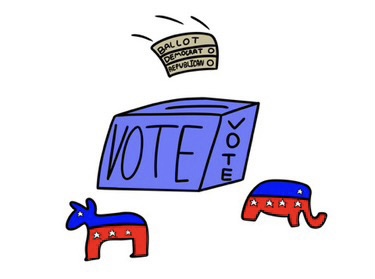Opinion: Hard Work is Overrated
Like so many of my Asian peers, my first-generation Vietnamese parents had a tendency to instill various conservative ideals and beliefs from my very early childhood. As immigrants from war-torn Vietnam, they were hungry for the opportunities that America seemingly provided them – a quality education, a safe community free from the violence of the past, and, most importantly, the ability and resources to rise out of the circumstances that they were born into. The American Dream was a desperate hope that many immigrants who came from impoverished circumstances clung to, believing this dream could be realized with only hard work itself. And many of them, decades later, were successful, reinforcing their confidence in the virtue of hard work.
But, despite what is commonly taught, the celebration of hard work in American and Asian American culture is both illogical and a classist notion used to preserve existing power structures and inequality.
In other words, hard work is overrated.
From a logical perspective, there is nothing objectively dignified about hard work. Is it not best to accomplish things the easy way? In fact, the concept of hard work is backward. As individuals, we spend most of our lives working hard for one purpose: to retire from work.
Almost every invention or innovation, from the lightbulb to the automobile to the telephone is created in such a way to make life easier for humans. When Thomas Edison created the first lightbulb, it was to make it easier for humans to see in the dark. The automobile was built to make it easier to transport people from place to place. The telephone was created to make communication easier. If it is a human objective to reduce the most amount of work possible, why is hard work such an idealized facet of our culture?
I anticipate that people might say that it is hard work that led to the emergence of these inventions. However, this objection itself demonstrates society’s fixation with hard work because it excludes any other way of working. Work thoughtfully, energetically, or happily and get the same goals completed without the exhaustion, physical or mental, that working hard is associated with. There is little reason to teach our young about the merits of hard work. To encourage them to attempt to reach this impossible, intangible standard of work will only result in stress, burnout, and even depression.
And a focus on hard work is more than illogical- it’s dangerous.
The notion of hard work remains part of an effort to deflect attention away from class division and even racism because its rhetoric marginalizes the issues of disadvantaged groups. Consider the civil rights movement’s struggle for social justice in the 1960s. When Black Americans called for equality, opposing groups spoke about the successes of Asian Americans. These supposed successes gave substance to the idea that the American Dream does not call for a systemic revolution or overhaul, but that it simply demanded the right possession of ideals, i.e. the hard-working mentality of Asian Americans. This attitude justifies the lack of action towards real issues within public policy. Political reforms proposed are dismissed because, according to the mentality, the law is not the problem. It is simply because the poor are not “working hard” enough. As a result, the sentiment of hard work can be used as a rhetorical weapon against Blacks and other minority groups.
And so, to the chagrin of my Asian parents, I remain convinced that hard work is overrated.
Avery Ngo is a Segerstrom senior and the editor-in-chief of The Jag Journal. She’s a book addict and enjoys every genre but sci-fi, especially fantasy,...










Ashley Lam • Jan 27, 2021 at 8:43 pm
Wow, this article has definitely changed my perspective on hard work and the values instilled in me from a young age. I have never thought of hard work as something that is attempting to divert attention from systemic racism and inequality. I do agree with aspects of this article, that the more affluent perceive those living in poverty as unwilling to work hard for what’s defined as “success”, Women and people of color have been reprimanded for their lack of trying and hard work to rise out of poverty when the problem lies in the mentality and stereotypes created. Simultaneously, I still believe hard work is an important value that shouldn’t be overlooked, as students, especially during the pandemic, have overcome obstacles through their perseverance and determination to succeed and their hard-working personality.